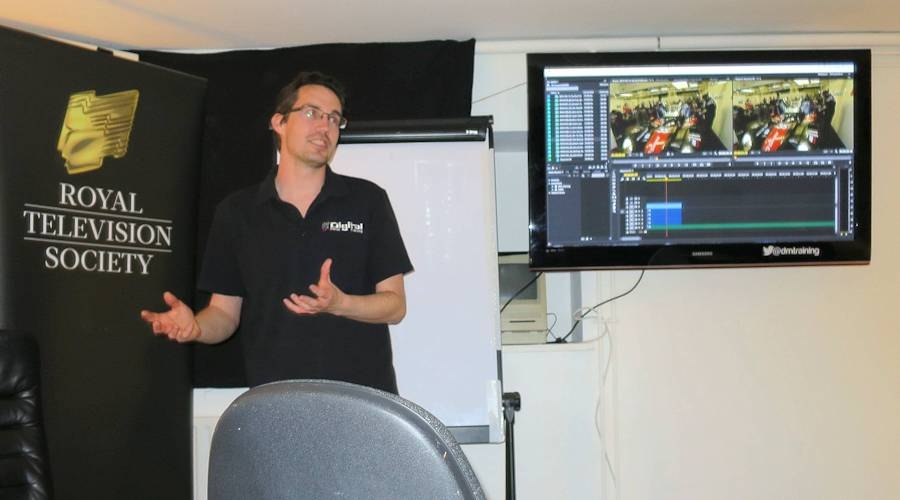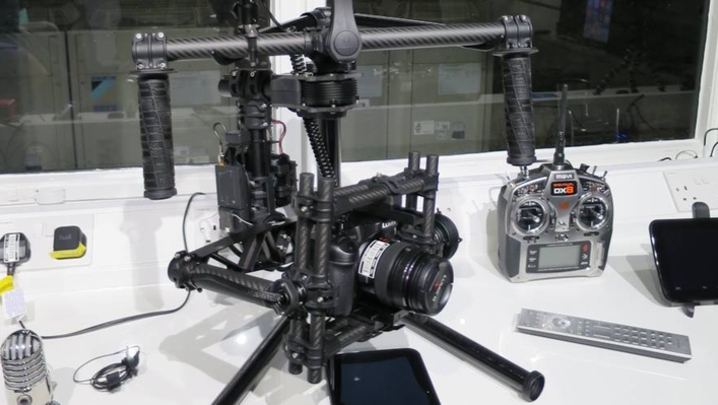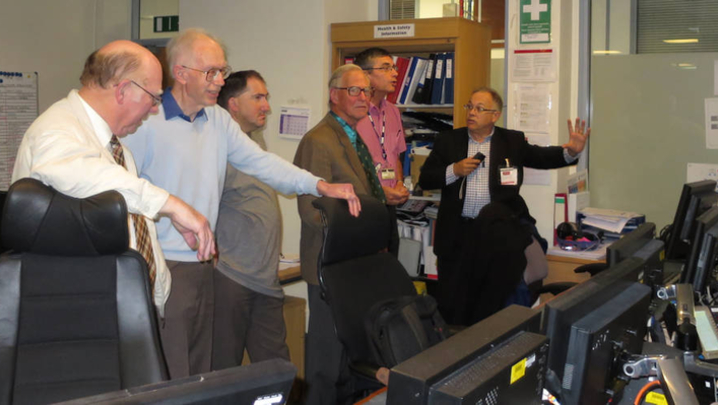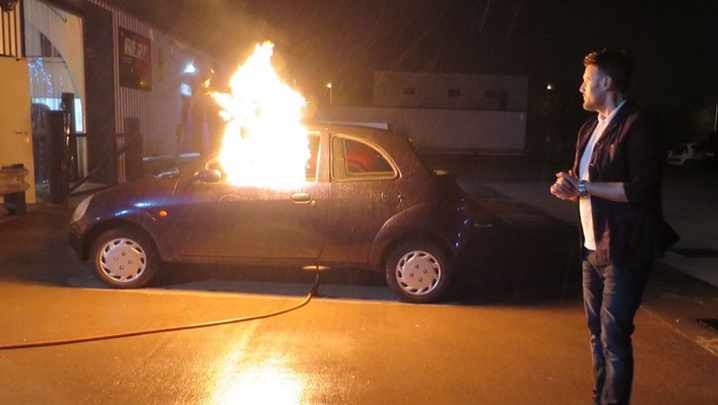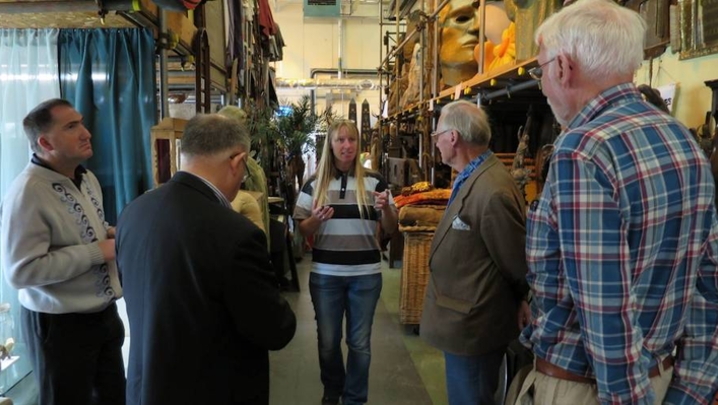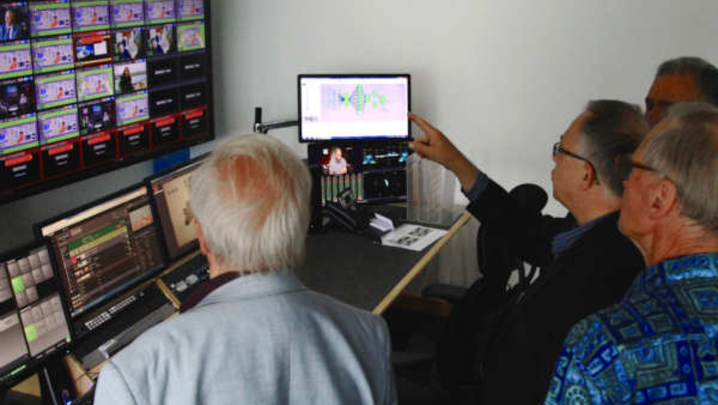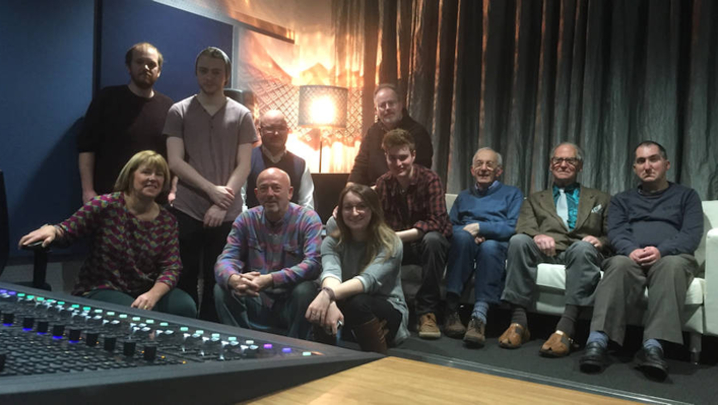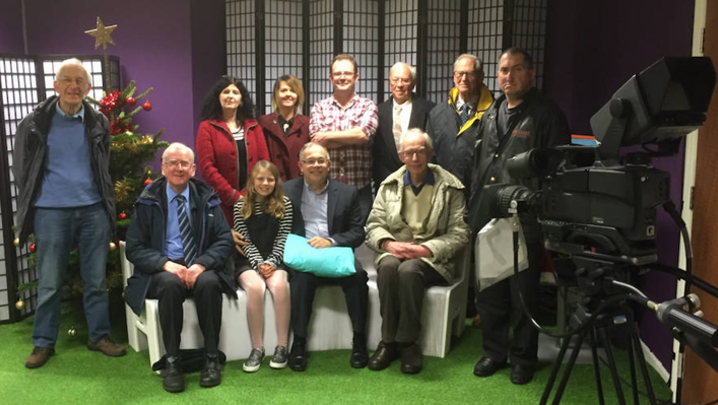Paul Hawke Williams (above) has an infectious enthusiasm, summed up in his attitude to post production, "It's so easy to edit these days ... non-linear editing is like word processing". He heads up Digital Media Training, a Cardiff-based training company that also has centres in Manchester, Tewkesbury, London and Glasgow. With over ten years experience as a video editor and trainer, Paul ably demonstrated the latest software packages at the company's training suite in Cardiff Bay on the 27th of April, to a diverse audience of students, sound/video editors and RTS members.
Apple's re-working of Final Cut has been controversial, but in Paul's view, "Final Cut Pro 10 represents a radical move away from conventional film based paradigms. It took a lot of getting used to but I love it now," adding that, "it's only a matter of time before Adobe's Premier and Avid's packages follow suit".
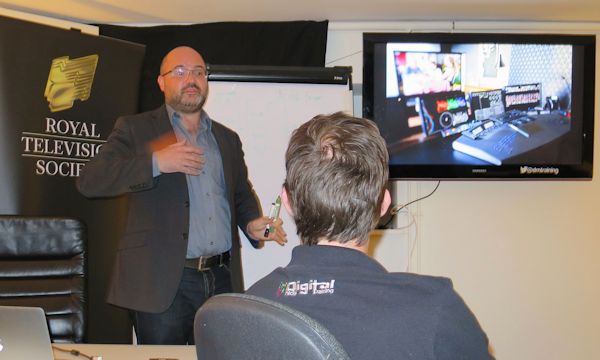
But Paul Owen (above), operations director of Gorilla Post, also presenting that evening, had a slightly different take. For him, Avid is king for work-flows and content sharing within a busy post production environment. Gorilla provides editing and sound dubbing services as part of the same group which includes Boom Productions and Two Four, two leading independents now based at the new Glo Works Creative Media Centre in Cardiff Bay, a stone's throw from the BBC's Drama Village. "The whole production team can work on the same material, with greater efficiency, saving huge amounts of time", said Owen. He explained that hard disk storage has proved to be unreliable for the vast quantities of video and audio files that have to be stored on behalf of clients as part of the work flow. So instead Gorilla now uses computer data tapes which have a longer life span, but even these have to be backed up on a regular basis.
Grading has also moved on, and with the very high picture quality now offered by the latest electronic cameras, Hawke Williams believes that industry production values are more closely emulating those of film than in the past. "We are now seeing colourists re-gaining importance in post, at the grading stage, particularly for high end drama". But commenting on the immense flexibility and power of modern software he added that, "although you can fix things in post, it's still better to shoot things properly in the first place".

